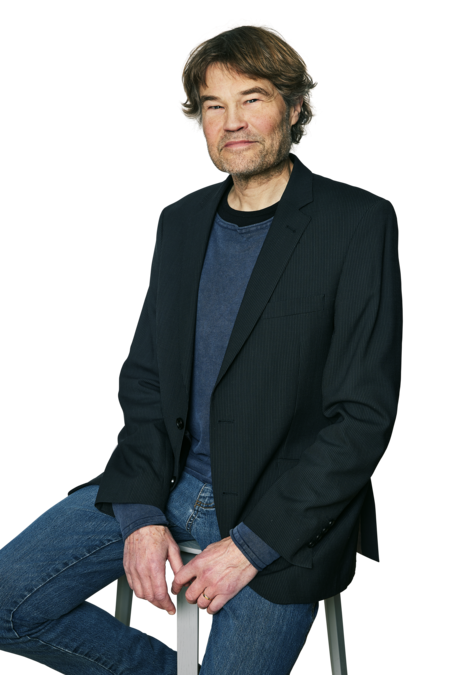DKK 41 million for research in the humanities

26.09.2019 l Latest news
Seven research projects from three Danish universities have received a total of DKK 41 mio. from the VELUX FONDEN core-group programme for research in the humanities. Early-career academics are well represented, the foundation notes
A core group is a closely collaborating research team typically consisting of one or two tenured senior investigators as project managers, e.g. a number of senior researchers and 2-3 postdoctoral scholars and/or PhD students.
A core group may consist of researchers from the same department or researchers across departments and universities.
One of the unique aspects of the programme is that university departments take part in the call for proposals and nominate projects for consideration.
The seven research projects receiving VELUX FONDEN core-group programme grants this year deal with a broad range of topics, from the impact of digital platforms on the labour market to the aesthetic-historical culture of 16th and 17th century Europe.
Read more about the projects below
Since 2008, the core-group programme has been the backbone of the foundation’s efforts to fund free, basic research in the humanities. In collaboration with Danish universities, VELUX FONDEN uses the programme to make grants to innovative project ideas and promising research talents.
“At VELUX FONDEN, we believe that the humanities play a crucial role in the development of our society,” says Ane Hendriksen, the executive director of VELUX FONDEN. “They are an important part of the foundation’s vision of promoting a democratic society that is informed, inclusive and sustainable. Amongst this year’s applications we can see that the consequences of digitisation is one of the topics that many of today’s most talented researchers are concerning themselves with. It is always with great pleasure and expectation that we make grants to interesting new core-group projects.”
Potential stepping stone
Early-career academics are well represented amongst this year’s grantees. VELUX FONDEN has prioritised development opportunities for the most promising younger talents.
“We can see that there is a need for grant opportunities for the group of experienced researchers who are on the verge establishing themselves as key figures in their field of study. We would like to help them to be able to create a strong humanities research environments that will attract even more talented researchers,” says Henrik Tronier, programme director for the humanities research area.
A study of the core-group programme carried out by VELUX FONDEN found that grantees go on to have remarkably successful careers. The explanation for this is likely that university departments nominate projects for consideration. This ensures that grantees are the most talented, most innovative researchers, and that the funding they receive contributes to long-term departmental research and instruction goals.
Geographically spread out
The seven grantees are affiliated with five universities throughout Denmark: University of Copenhagen (two grantees), University of Southern Denmark (two grantees), Aarhus University, Roskilde University and the IT University of Copenhagen
Associate professor Mia O'Toole: The role of the motoric system in emotions: Establishing the MOTOR Group, Aarhus University
DKK 5.3m
Our motor system – expressed in posture and gait – guides our perception of and actions in the world. This project will establish the MOTOR group which will investigate 1) if certain motor expressions can help individuals take adaptive action, that is, action congruent with the indivual’s goal and appropriate to the context, and 2) how such effect comes about, that is, what the mechanisms of change are. A number of experiments will be conducted on both healthy individuals and individuals with mental disorders such as anxiety and depression. The overall aim is to advance our understanding of how we can use our bodies to take wanted action. Such knowledge is important not only from a normative perspective but also from a clinical perspective where it can help guide and optimize psychotherapy for anxiety and depression.
Associate professor Anna Ilsøe and associate professor Trine Pernille Larsen: The digital economy at work – integration and segmentation in hybrid labour markets, University of Copenhagen
DKK 6.0m
Who delivers your take-away, cleans your home, offers you a place to sleep, designs your website, and under what conditions? Such questions are often raised in association with the recent emergence of digital platforms such as Airbnb and Uber that mediate various services worldwide. A group of these platforms has been characterised as labour platforms - with Uber as the most prominent example - because they mediate work assignments on a freelance basis via web sites and apps. Work via labour platforms has sparked political and academic debates that often focus on low pay rates and fragmented working hours. However, recent surveys also point to that labour platforms may ease the transition to employment for those struggling to gain a foothold on the labour market. This research project aims to uncover the relationship between platform work and future employment with the Danish labour market as an empirical case. We combine traditional register data and new digital data from labour platforms to uncover dynamics of integration and segmentation of platform workers on and beyond the platform.
Associate professor Ezio Di Nucci: The future of family relationships, University of Copenhagen
DKK 6.0m
Families are changing. We are experiencing, simultaneously, a record number of people who never marry; a record number of people divorcing; and a record number of people who are born thanks to reproductive technologies, including many from same-sex couples. These developments have given new urgency to questions about the nature and value of family ties: what does it mean, for example, to be someone’s mother, father or child? And, crucially, what sorts of rights and responsibilities should follow from such bonds, both for those individuals within the relationship and for individuals and institutions outside of it, such as for example the healthcare system or the state? Those questions have profound implications on the structure of both our private and public life. The purpose of the FutureFamily project is to offer a detailed philosophical analysis of the nature and value of family relationships in the 21st century. Specifically, we aim to develop a philosophical foundation that social, legal, and policy questions can draw upon. Such a foundation, providing essential conceptual and ethical guidance, will aid our social and political institutions in making fair and just decisions for families of the future, with particular reference to recent social and technological change
Professor MSO Peter Starke and professor Georg Wenzelburger: The Politics of Insecurity (POINS), University of Southern Denmark
DKK 6.0m
We live in an age of insecurity. The core-group POINS wants to know how citizens’ rising subjective insecurity is reflected in social welfare and criminal justice policymaking. 1) How does insecurity affect citizens’ policy attitudes? 2) When and how do political parties respond to insecurity? And, finally, 3) how does insecurity influence policy reforms? The project works with two opposing scenarios: On the one hand, parties and policymakers might respond with more protection, in the form of social welfare or effective crime prevention. On the other hand, exclusion and harsh punishment of outgroups and marginalized populations could be the result. These alternative dynamics will be systematically analyzed by an interdisciplinary team using both quantitative and qualitative methods and data from Denmark and a sample of EU and OECD countries. An Outreach Group with members of civil society will develop concrete policy proposals.
Lektor Jannie Møller Hartley: Datafied News Media – Datafied Publics? The future of Journalism and their Publics in in the Age of Datafication, University of Roskilde
DKK 6.0m
The project examines what the ever-increasing amount of data available in our society means to Journalism, and thus sheds light on the changes in the relations between the news media and the news users. In recent few years, big tech companies such as Facebook, Google and Amazon have taken on an increasing role in news distribution, and their increased importance is changing not only journalism as we know it today, but also the news media ecosystem itself. At the same time, news organizations have big data sets about the behavior of the news user, just as the news user can partly personalize his or her news consumption through filters and partly subject to filtering through various algorithms. In other words, the data affirmation has fundamentally changed the news journalism, and this project examines what it means and what consequences it has for the democratic conversation and public connection. Through four empirical studies, we analyze how datafication of news transforms the way the publics are created and how it affects citizen engagement with the public. Overall, the project thus contributes to a new field of research on datafication of the news media and their publics and will theoretically develop the concept of “Datapublics”.
Associate professor Sofie Kluge: Histories. Assessing the Role of Aesthetics in the Historical Paradigm, University of Southern Denmark
DKK 5.8m
The increasing opposition between academic approaches to historical knowledge and competing (propagandistic, creative, popular) visions of the past suggests the very idea of what is ‘historical’ to be undergoing significant transformation. Yet, standing in the middle of such a process, it can be hard to estimate its final outcome. In order to understand the current challenging of the historical paradigme we therefore need to go back to the roots: the aesthetic-historical culture that flourished in Europe between 1550 and 1650. The developments of those hundred years in historiography and theory of history determined modern historical method and the modern concept of historical factuality. Yet, the culture from which these developments sprang amalgamated fact and fiction in ways we would today consider problematic. HISTORIES investigates this greyzone backdrop of the emergence of the historical paradigm, testing the claim that the multiple hybrids between aesthetics and historiography which came into being 1550-1650, historical drama in particular, were not the fabulous other of the progressing culture of facts, but vital to the emergence of modern—critical, reflective—attitudes toward history. Thus, the project highlights the problem-oriented, audience-involving approaches to history developed in a range of European contexts at the dawn of the modern period as an alternative modern historiographical paradigm with relevant perspectives for rethinking historism.
Associate professor Vasileios Galis and professor Brit Ross Winthereik: Welfare After Digitisation, IT University of Copenhagen
DKK 6.0m
The research project Welfare after Digitisation examines the many and varied consequences of public sector digitisation in Denmark. The project focuses on four different welfare areas: Law enforcement, primary education, healthcare, and local government. The assumption is that an analysis of the complex relationships between the institutional values, digital affordances and politics of these welfare sectors will help uncover new insights about how both citizens and professionals think about and experience welfare provision. The analyses will contribute to a deeper understanding of the nature of public sector digitalisation, its consequences across different sectors, while also pointing to welfare areas in particular need of attention in the coming years.

Core-groups
The core-group programme funds research in the humanities and allied social science disciplines.

